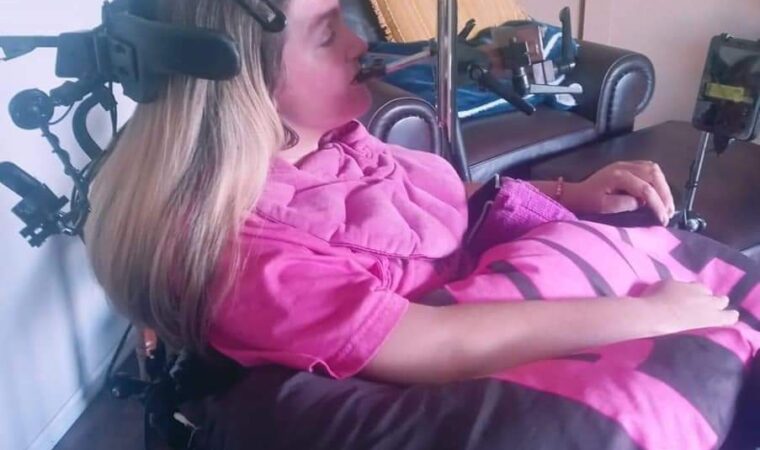Hands-Free Hobbies for Spinal Cord Injury Survivors
With my complete C3 quadriplegia diagnosis, at first I imagined myself sitting in a power wheelchair gazing at the wall for the rest of my life, or out the window, had I been placed near one. I really couldn’t muster motivation to live just to sit through life, hands immobile on my armrests.
Fortunately, that fantasy was far from the truth. Eight years now, and I can’t remember the last time I was bored enough to stare listlessly into space, remembering life instead of living it.
The following are a few ways to stay busy and productive post SCI.
- Watching TV is more than a way to pass time if you’re watching educational material at times, especially when you’re learning information you can use or pass on. Multiple apps allow for streaming of educational content like documentaries. YouTube vlogs by other people with disabilities can provide insightful information too.
- Social media can be a productive past time if you’re connecting with others and having meaningful conversations. Social media support groups are helpful for thousands of people with spinal cord injuries.
- Reading: read literature on Kindle or listen on Audible.
- Writing: Using voice apps and mouth stylus pens with smart devices, many quads journal, copywrite, or freelance, writing articles for publications on disability and other topics, as well as write memoirs and even novels.
- Vlogging: Keeping video record of your adventures as a quadriplegic often makes for watchable content for other people with SCI. Show your tips and tricks and share your link in support groups as well as among the able bodied who lack intel about our lifestyle.
- Counseling: Sign up with the Christopher Reeves Foundation to be a peer counselor, or join an online organization that trains you for a suicide hot-line.
- Public speaking: Some quads enjoy sharing our stories to inspire others. Sharing can also serve a purpose and help others avoid SCI. Consider speaking at schools about drunk driving, safe diving, seat belts, or any factor relevant to injury.
- Get a service dog. Or just a companion!
- Education: Take college courses online, and/or work from home.
- Mouth painting and drawing. Check out quadriplegic painters on YouTube and Instagram.
- Nature rolls: Get outside! Locate accessible trails, visit national parks.
- Attend concerts, spoken word, live music, festivals, cosplay, movie theaters, museums.
- Wheelchair groups: While groups for paraplegics may play adaptive sports, high level quads gather to check out museums, parks, movies, ect., and just get together to socialize.
Most of these hobbies don’t cost much, or require transportation. Technology makes it possible to interact with the world from our own homes and right from our wheelchairs.
Even high level, complete quadriplegics can enjoy socializing and fill our lives with meaningful activities.
